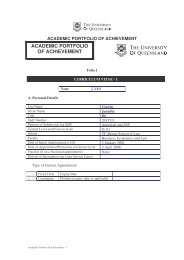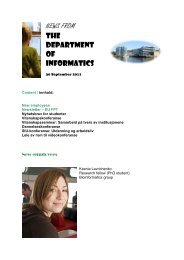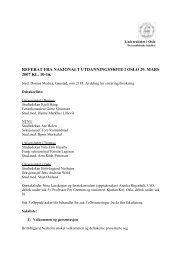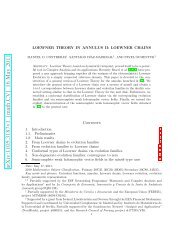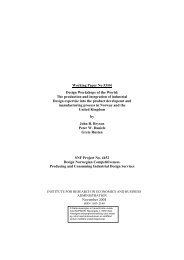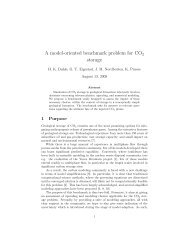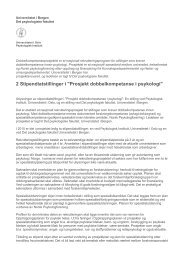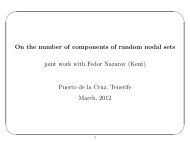?Caucasian? female labor migration in contemporary Russia ...
?Caucasian? female labor migration in contemporary Russia ...
?Caucasian? female labor migration in contemporary Russia ...
You also want an ePaper? Increase the reach of your titles
YUMPU automatically turns print PDFs into web optimized ePapers that Google loves.
“economic migrants”, and the ma<strong>in</strong> task for the state is to make them legal, means controllable<br />
and taxable.<br />
Moreover, gaps <strong>in</strong> the realization of the state <strong>migration</strong> policy create chances for bureaucratic<br />
manipulation. The state policy stresses the civil component of the nation state concept; however<br />
at the level of bureaucratic practices ethnic component of nation state is heavily employed, so<br />
“<strong>Caucasian</strong>s’ face ethnic and race discrim<strong>in</strong>ation also at official level. As a result they prefer to<br />
stay <strong>in</strong> shadow s<strong>in</strong>ce there are no real benefits form be<strong>in</strong>g legal <strong>labor</strong> migrant <strong>in</strong> <strong>contemporary</strong><br />
<strong>Russia</strong> (Guerassimova, Pachenkov 2005).<br />
Due to the lack of official structures and <strong>in</strong>stitutions work<strong>in</strong>g with migrants and support<strong>in</strong>g them,<br />
on the one hand, and due to restrictive residential registration system, on the other hand,<br />
overwhelm<strong>in</strong>g majority of migrants stay unregistered <strong>in</strong> <strong>Russia</strong>, mean<strong>in</strong>g – illegal. Consequently<br />
they have no right to work, no ability to pay taxes, no access to social benefits. They live and<br />
work <strong>in</strong> a black or at the best <strong>in</strong> a grey sphere. Migrants from Caucasus region of former USSR<br />
are even <strong>in</strong> worse conditions due to ethnic hostility and racism which are widespread <strong>in</strong> <strong>Russia</strong>n<br />
society (Brednikova, Pachenkov 1999).<br />
Chang<strong>in</strong>g patterns: <strong>female</strong> <strong>migration</strong> <strong>in</strong> <strong>Russia</strong><br />
Scholars study<strong>in</strong>g <strong>migration</strong> note that although male <strong>migration</strong> was predom<strong>in</strong>ant globally for last<br />
several decades, it seems that now patterns of <strong>migration</strong> are chang<strong>in</strong>g (Carl<strong>in</strong>g 2005).<br />
Fem<strong>in</strong>ization of <strong>migration</strong> has been recognized as a tendency at the global level (Castles and<br />
Miller 1993: 67). Today, women constitute about half of <strong>in</strong>ternational migrants and <strong>in</strong> some<br />
countries <strong>female</strong> migrants actually outnumber male migrants (Boyd, 1992; Simon and Brettell,<br />
1986). So now “male <strong>migration</strong>” pattern has been replaced by “family <strong>migration</strong>” and <strong>female</strong><br />
<strong>migration</strong>. This tendency could be noted <strong>in</strong> <strong>Russia</strong> too. For example, at the territory of <strong>Russia</strong><br />
one can f<strong>in</strong>d all three types of gender composition of <strong>migration</strong>, for example, Armenians and<br />
Azerbaijanis seem to represent “family <strong>migration</strong>” patterns, and overwhelm<strong>in</strong>g majority of<br />
migrants from Moldova, Ukra<strong>in</strong>e and Byelorussia are <strong>female</strong>s (Brednikova 2003).<br />
Concern<strong>in</strong>g the family <strong>migration</strong>, scholars suggest an explanation as follows. In early 1990-s a<br />
significant proportion of adult males from former USSR left their countries <strong>in</strong> search of job<br />
opportunities. This caused the situation when women take responsibility for the traditional<br />
patterns of male authority. Women got new power but on the other hand they were disappo<strong>in</strong>ted<br />
with this situation of be<strong>in</strong>g a woman and a man at the same time (<strong>in</strong> terms of gender roles and<br />
obligations <strong>in</strong> "functional" sense). Studies of Armenian women stay<strong>in</strong>g <strong>in</strong> Armenia while their<br />
husbands had immigrated to <strong>Russia</strong> showed that women compla<strong>in</strong>ed about this situation because<br />
of suffer<strong>in</strong>g liv<strong>in</strong>g without man and because of a sort of "symbolic loss" caused by break of<br />
traditional gender relations and deviation "from the ideal of the exemplary traditional household,<br />
from the norm to which everybody is expected to aspire" (Shahnazaryan 2005). As a result those<br />
of them who did not want to be "virtual widows" - took children and followed their husbands <strong>in</strong><br />
<strong>migration</strong>. They might come even without ask<strong>in</strong>g a permit from husbands or other elder relatives<br />
from husband’s part of family (s<strong>in</strong>ce one anyway needs support from her social networks to<br />
immigrate, so here women relied on their own part of k<strong>in</strong> or friend networks). This situation<br />
leads to changes <strong>in</strong> the family relations of the migrants, it is resulted <strong>in</strong> the reconfiguration of the<br />
gender roles and gender contracts <strong>in</strong> their families, because women become relatively free and<br />
self-dependent breadw<strong>in</strong>ners, while men stay as house husbands (Brednikova 2003).<br />
In terms of employment <strong>female</strong> migrants usually occupy the same niches as their male<br />
predecessors – ma<strong>in</strong>ly retail trade. Women who come as followers of their husbands are <strong>in</strong>cluded<br />
<strong>in</strong> their husbands social networks that allow them to f<strong>in</strong>d jobs. However they often establish \<br />
enter their own “<strong>female</strong> migrants” networks and f<strong>in</strong>d job and new opportunities through them.<br />
3



